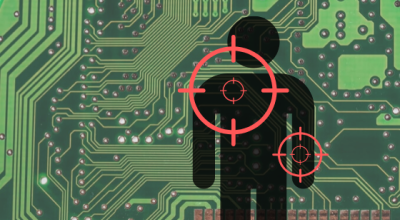In a major campaign victory, Microsoft announced on March 27, 2020, that it would “divest its shareholding in AnyVision,” an Israeli company whose technologies power the Israeli military’s surveillance of the occupied Palestinian civilian population of the West Bank.
Microsoft’s decision was prompted by a multi-stakeholder campaign demanding Microsoft to comply with its own principles for the ethical use of facial recognition, and divest from AnyVision. The AFSC organized an appeal by responsible investors of the company, including large institutional investors, and raised their concern in Microsoft’s annual shareholder meeting in December. The campaign coalition included the AFSC, Jewish Voice for Peace, MPower Change, SumofUs, Ban Facial Recognition, and the Palestinian Boycott, Divestment, and Sanctions (BDS) National Committee.
Microsoft’s decision followed the completion of an internal audit of AnyVision’s activities by the consulting firm of former U.S. Attorney General Eric Holder. The audit’s findings cleared AnyVision of any violation, stating that its technologies were used only in “border crossing checkpoints between Israel and the West Bank.” However, Holder’s firm admitted it was not allowed to review “sensitive information” to confirm or deny publications about a highly classified project of thousands of cameras deployed “deep inside the West Bank.”
This audit is a sham. Anyone looking at a map can see that Israeli military checkpoints in the West Bank are not border crossings between two nations. They are located inside the occupied Palestinian territory, all of it subject to Israeli military law, part of a system of movement restrictions on the Palestinian civilian population which the International Court of Justice ruled to be “contrary to international law.” These checkpoints cause severe harm to Palestinian life and basic freedoms, as documented over the last three decades by all Palestinian, Israeli, and major international human rights organizations.
Microsoft knows all that, as is seen by its decision to divest from AnyVision and to “end all minority investment” in such companies in the future. This is the right call, and this is the right time for it: as governments look for more measures of mass control, they turn to technologies previously used on occupied people, on incarcerated people, on those deemed disposable and belligerent. Now, more than ever, we know that just like our health, our civil rights and freedoms are all bound together.
Background
In June 2019, Microsoft’s venture capital subsidiary M12 made a multi-million-dollar investment in AnyVision Interactive Technologies Ltd, an Israeli startup company that specializes in integrating computer vision, facial recognition, and artificial intelligence technologies. The exact investment amount was not disclosed, but the combined investment of Microsoft, DFJ Growth, and OG Technology Partners amounted to $31 million. Other AnyVision’s investors include engineering and technology conglomerate Robert Bosch GmbH, chip manufacturer Qualcomm, and venture capital firms Eldridge Industries and LightSpeed Venture Partners.
AnyVision’s main security product, Better Tomorrow, uses facial biometrics to identify specific people within large crowds. This technology has been integrated into Israel’s illegal military checkpoints in the occupied West Bank. AnyVision reportedly has another, more secretive project, using a network of thousands of cameras deployed “deep inside the West Bank” that place the Palestinian civilian population under constant surveillance. The project includes vehicle tracking using license plate reader cameras and has led to the arrest of hundreds of Palestinians in 2018.
AnyVision’s technologies are used by government agencies and private actors in at least 44 other countries. Among others, the company sells its technology to state actors in Russia and was expanding its operations in Hong Kong in the summer of 2019, as facial recognition technologies were documented being used to repress protests there. The U.S. Navy also bought AnyVision’s technology in 2019, and the company’s CEO said the company employs lobbyists in the U.S. Congress to “explain why artificial intelligence is a good thing.”

